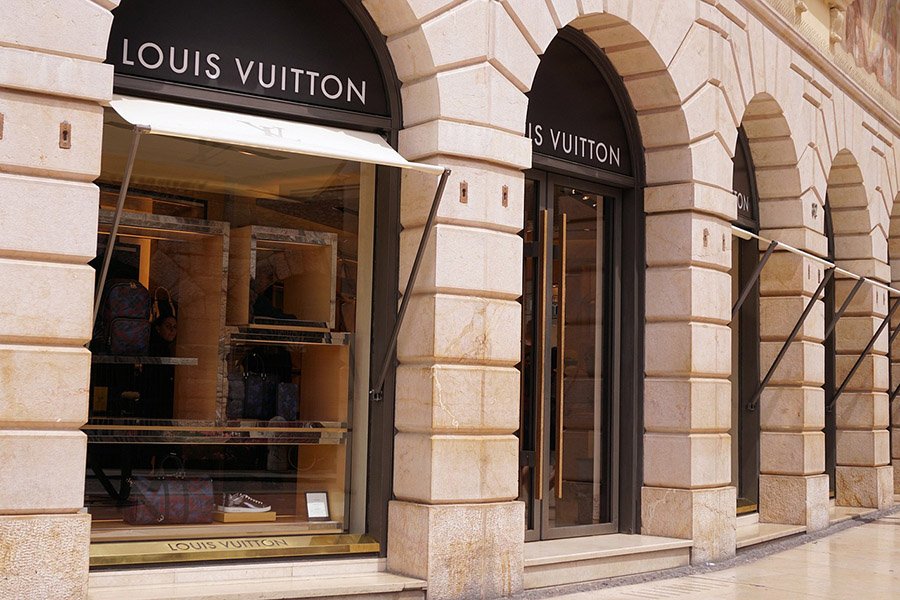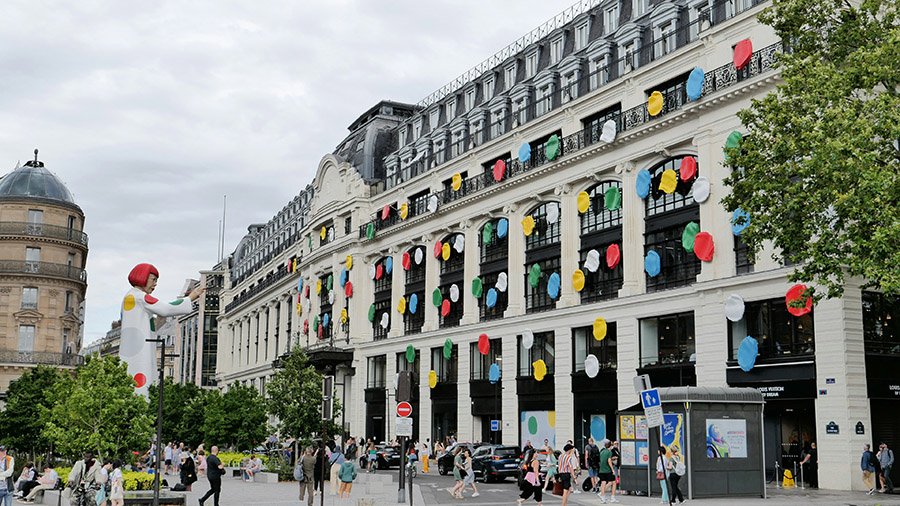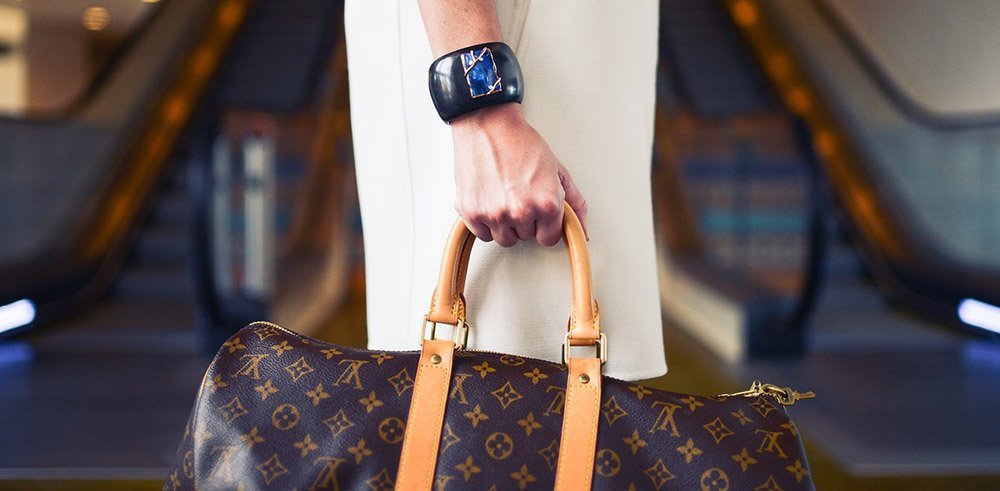Alexandre Arnault is a rising figure in the luxury industry and is widely viewed as a potential successor to his father, Bernard Arnault, the CEO of LVMH, one of the largest luxury conglomerates in the world.
Despite his youth, Alexandre has already made significant strides in his career, holding leadership positions at high-profile brands and demonstrating a knack for modernizing traditional luxury. His journey reflects not just the prestige of the Arnault family but also the evolving nature of the luxury industry.
Early Life and Family Background
Born into a life of luxury, Alexandre Arnault is the third child of Bernard Arnault, Europe’s wealthiest billionaire and the CEO of LVMH, and his second wife, Hélène Mercier-Arnault, a renowned concert pianist. Growing up in this environment, Alexandre was exposed to the workings of the luxury industry from an early age. He often spent his Saturdays in LVMH brand stores and accompanied his father on business trips, gaining firsthand experience in the family business.
The Arnault family holds a significant stake in LVMH, and Bernard’s children are deeply involved in the conglomerate’s operations. Alexandre’s older siblings, Delphine and Antoine, hold executive positions at Louis Vuitton and Berluti, respectively, while his younger brother, Frederic, is the CEO of Tag Heuer. This familial involvement highlights the strong connection between the Arnault family and LVMH, suggesting that the next CEO could likely come from within the family.

Career at Rimowa
Alexandre Arnault’s first major leadership role came at Rimowa, a premium luggage brand acquired by LVMH in 2016 for $717 million. At just 24 years old, he was appointed co-CEO, a position he shared with Dieter Morszeck, Rimowa’s long-standing leader and grandson of the company’s founder. Despite his lack of extensive experience, Alexandre’s vision for Rimowa was clear: he aimed to modernize the brand and make it more culturally relevant.
His approach to revamping Rimowa focused on innovation and celebrity collaborations, which helped transform the brand’s image. Alexandre’s efforts included raising prices, launching new product lines, and opening boutiques in trendy locations like Soho and Berlin. However, his biggest impact came from his ability to leverage high-profile connections. Collaborations with fashion icons like Virgil Abloh and streetwear brands like Supreme created significant buzz, turning Rimowa into a trendy and sought-after brand.
While his time at Rimowa was marked by success, it wasn’t without its challenges. Alexandre faced criticism for his restructuring efforts, which led to the departure of several key executives and changes in company culture. His leadership style, which some described as aloof and detached, also drew criticism from employees. Despite these challenges, Alexandre’s tenure at Rimowa demonstrated his ability to modernize a legacy brand and positioned him as a prominent figure in the luxury industry.
Leadership Style and Criticism
Alexandre Arnault’s leadership style is a mix of innovation and celebrity networking. Known for his high-profile connections, he leverages relationships with celebrities, tech leaders, and business moguls to create buzz around the brands he leads. This approach was evident during his time at Rimowa, where collaborations with big names like Virgil Abloh and Supreme brought fresh energy to the brand. However, this preference for high-profile connections has also led to criticism from some former employees, who described Alexandre as aloof and detached.
Several former Rimowa employees noted that Alexandre often kept to himself, rarely engaging in small talk or building rapport with the broader staff. His failure to show up at key events, such as the 2019 holiday party in Paris, was seen as a significant letdown. The event was highly anticipated, with Alexandre hyping it up in the weeks leading to it, yet he canceled at the last minute due to city-wide transportation strikes. His absence was a disappointment to employees eager to connect with their young CEO, affecting morale and reinforcing the perception of his aloofness.
Beyond social events, some staff members felt that Alexandre’s focus on networking with celebrities and high-level executives contributed to his perceived distance from day-to-day operations. At Rimowa’s Cologne office, one former executive mentioned that Alexandre spoke primarily with his inner circle, comprised of executives from LVMH or those he knew from Paris. This insular behavior left many employees feeling disconnected from their leader.

Transition to Tiffany & Co.
Following his tenure at Rimowa, Alexandre Arnault took on a new challenge as the Executive Vice President of Tiffany & Co., marking his transition to a more prominent role within the LVMH empire. This appointment came shortly after LVMH acquired the iconic jewelry brand in 2021, making it the largest acquisition in the conglomerate’s history. As such, the expectations for Alexandre were high, with his role seen as critical to the success of the Tiffany’s acquisition.
His new position at Tiffany’s is viewed as a strategic move by LVMH, demonstrating the company’s commitment to revitalizing the storied brand. Alexandre’s task was to inject new life into Tiffany’s, which had experienced a period of stagnation, and reposition it as a leader in the luxury jewelry market. Given his success in modernizing Rimowa, he was seen as the ideal candidate to spearhead this transformation.
In his role at Tiffany’s, Alexandre implemented several changes to modernize and rebrand the company. He brought in new creative talent, including former Revlon creative director Ruba Abu-Nimah, and shifted the company’s focus toward digital marketing. These changes reflected his youthful approach and his understanding of modern luxury trends. Alexandre also embraced a more playful and inclusive image for Tiffany’s, introducing bold ad campaigns and signing new celebrity ambassadors, such as Chinese freestyle skier Eileen Gu and K-Pop singer Rosé from the band Blackpink.
These steps signaled a departure from Tiffany’s traditional, somewhat conservative image and were part of Alexandre’s strategy to make the brand more appealing to younger consumers. His efforts to reinvigorate Tiffany’s were met with enthusiasm in the luxury industry, with many seeing this as a sign of Alexandre’s potential to play a significant role in LVMH’s future.
Impact and Vision for the Future
Alexandre Arnault’s impact on the luxury industry is rooted in his innovative approach and deep understanding of contemporary culture. His vision for the brands he leads is one that combines heritage with modernity, using digital platforms and social media to engage a new generation of consumers. At Rimowa, Alexandre’s collaborations with high-profile celebrities and brands helped transform the company’s image, making it more appealing to younger audiences.
With his role at Tiffany & Co., Alexandre’s vision extends further, aiming to rejuvenate the iconic jewelry brand by injecting it with fresh energy and a playful spirit. By hiring creative talent with a modern outlook and emphasizing digital marketing, Alexandre seeks to position Tiffany’s as a leader in the luxury jewelry market. His use of social media platforms to engage with consumers and generate buzz is a testament to his understanding of the power of digital connections in today’s luxury landscape.
Looking ahead, Alexandre’s future at LVMH seems promising. His ability to modernize legacy brands, coupled with his strategic networking skills, makes him a strong contender for leadership within the conglomerate. As Bernard Arnault’s successor remains undecided, Alexandre’s achievements could play a significant role in shaping LVMH’s direction in the coming years.
Conclusion
Alexandre Arnault’s journey in the luxury industry is marked by a unique blend of tradition and innovation. From his early exposure to LVMH to his transformative work at Rimowa and Tiffany & Co., Alexandre has demonstrated a keen understanding of what it takes to succeed in the modern luxury world. Despite criticism for his aloof leadership style, his ability to connect with high-profile influencers and celebrities has proven effective in revitalizing legacy brands.
His role at Tiffany & Co. signifies a crucial test for his leadership skills and his potential to succeed Bernard Arnault at the helm of LVMH. If he can successfully rejuvenate the iconic jewelry brand and continue to drive innovation, Alexandre’s influence on the luxury industry could be profound.
Ultimately, Alexandre’s journey reflects the evolving nature of luxury, where traditional values meet contemporary trends. As he navigates the challenges and opportunities ahead, his leadership style and vision could play a pivotal role in shaping the future of LVMH and the broader luxury landscape.








Add comment